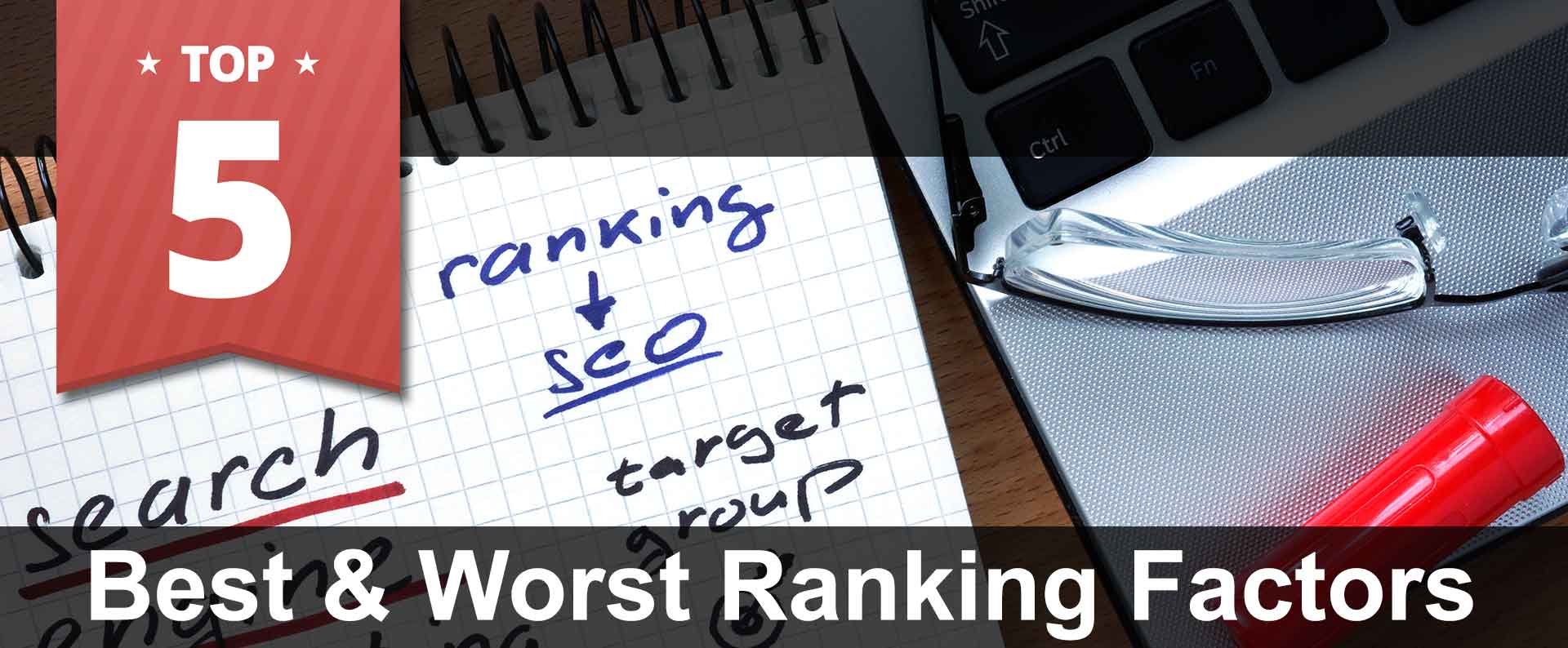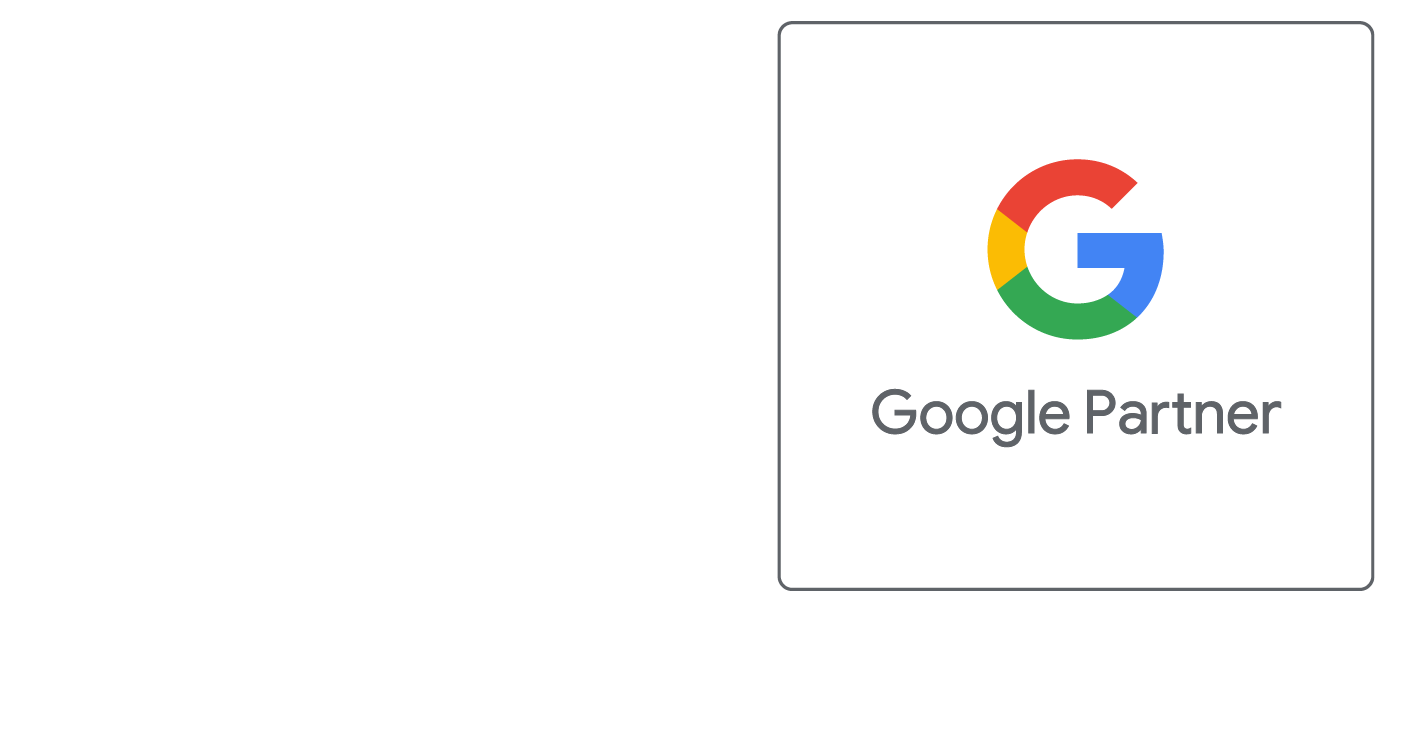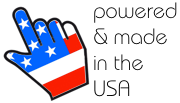Search engine experts are constantly debating which of the hundreds of factors Google uses to rank websites for search results, has the greatest positive and negative impact.
Since 2005, top experts in organic search optimization have continuously agreed on the top factors believed to have the greatest affect in determining website ranking.
With hundreds of different factors affecting website ranking to consider, many fluctuate in score on the positive and negative scale of affect.
While, the top five positive and negative factors have remained relatively constant for over a decade, (and most still apply today) we've seen a shift with two new factors of significant importance.
Below are the Top 5 positive and negative factors everyone must pay attention to:
Top 5 Positive Factors According to the Experts
1. Content Quality & Length, Meta Tag Usage, & Schema
Content Quality
- Google recognizes and rewards websites with quality content related to user search results.
- Fresh, regularly updated content receives better ranking than old, stale content.
- Content should contain relevant keywords and phrases, while avoiding keyword stuffing.
- Website content should be in-depth, helpful, and useful to users to receive higher ranking.
- Content should focus on quality and value for the end-user, not quantity.
Content Length
- While quality is the most important, a site with a quantity of quality content will receive the highest ranking.
- Focus on semantic queries and related content; comprehensive content normally receives better ranking.
- A website that appears as a quality encyclopedia on a topic will perform better than a site with minimal information.
- Studies show a correlation between quality content length and top search positions in Google.
Keyword Use in Title Tag
- All website pages have what is considered a Title Tag.
- The Title Tag is used to tell both people and search engines what a particular web page is about.
- As well, the Title Tag is normally used by browsers to display the page's title at the top of a browser window.
- Experts agree that a good Title Tag will use important and relevant keywords directly related to the page and its specific content.
- Experts also agree that a poorly written Title can hurt ranking, as it makes it difficult for Google to properly index the page and its associated content.
Anchor Text of Link
- Anchor Text relates to the specific words used to create a hyperlink
- Experts agree that a link's Anchor Text should be keyword rich and descriptive of the page linked to.
- Often "click here" is used for anchor text, and obviously is extremely general, vague, and very poor usage of anchor text.
- Using keyword rich anchor text such as "learn more about [keyword/product/service]" is a better descriptive link .
Schema
- Schema is structured data added to the website code that makes it easier for search engines to understand content and intent.
- Structured data is important in the new field of voice search and helping users find content and sources related to their search queries.
- Schema markup added to the code can help improve search-ability and bringing in qualified leads and sales.
2. Mobile-Friendliness, Page Speed & Security
Google's Gone Mobile-First (Includes User Experience)
- Mobile-friendly, responsive means a website's content automatically resizes based on the device's screen size for ease of user readability and experience.
- As of 2018, Google puts "mobile-first" content in search results.
- Google's mobile-friendly requirements were first introduced back in 2014; then as of Fall 2016 Google began putting mobile-friendly search results first.
- Today Google expects all sites to be responsive with the same content displayed, regardless of device or screen size. (Google doesn't want separate content for mobile versus desktop sites.)
- Sites that are not mobile-friendly are rarely ranked first in search results when other sites with similar, or better, content are mobile-friendly and responsive.
- Google considers responsiveness part of a "positive user experience". (User experience is a growing and important factor to take into account when analyzing successful aspects of a website.)
Page Speed
- As many users access the internet from their mobile devices, Google uses Page Speed as a top factor in determining ranking in search results.
- Sites with faster page loading times receive better ranking, versus slow loading pages; especially on mobile platforms.
- Website pages should load on average in 2-3 seconds.
- Most mobile users expect pages to load in less than 4 seconds.
- Users tend to abandon a page and go elsewhere if it doesn't load in approximately 6-10 seconds.
HTTPS Security Encryption (SSL Certificates)
- Google uses security encryption as a major ranking factor in search results.
- Sites using HTTP without the "S" on the end, are insecure; HTTPS means the site is secured and all the information encrypted.
- HTTPS encryption is often indicated by the padlock next to the URL (domain address) in the browser's address bar.
- User activity on secured sites cannot be tracked or stolen.
3. Brand Power & Social Signals
Brand Power
- Branded searches signal to Google that a particular site is popular, which can boost a company's corresponding social profiles.
- Google uses the amount of direct traffic (users typing in the exact website address) to a site to help determine its brand power.
- Brand power indicates trust and brand awareness by users and consumers.
Social Signals
- Social media is used by search engines to help determine popularity, and thus affect search result ranking.
- Social posts are continuing to correlate very well with websites receiving better rankings in search results.
- Posting on social media is of growing importance for SEO, and needs to be considered by all businesses, regardless of industry.
- Sharing links to a company's products, services, and resources on social platforms helps ranking and position in search results.
4. Link Score - Global & Internal Link Popularity
Global Link Popularity of Site
- Experts believe that popular websites with a good PageRank will receive a better ranking in Google.
- Websites with valuable resources on specific topics will be popular to link from other websites.
- The more incoming links a website page has, the better ranking it will receive.
- A page with no links to it, might as well not exist.
Link Popularity within the Site's Internal Link Structure
- Thorough linking of all internal website pages is important.
- Often website page content gets buried several levels deep within a website. This is often seen with large product catalog sites, or sites with lots of informational reference materials.
- Linking to internal pages from the home page of a website can help increase an internal page's link popularity.
- Again, using appropriate Anchor Text when linking internal pages is important.
- An internal page of a website with no incoming links, might as well not exist.
5. Domain Power & Age of Site
Domain Power
- Domains that match an exact keyword or phrase query often get better ranking, pending the content of the site backs up the keyword or phrase in the URL or domain.
- Domains that contain at least one keyword somewhere in the domain or URL can still get good ranking, especially if the content matches.
- Domains that have been around longer than others, will often rank and hold top positions longer, than new domains with a limited track record.
Age of Site
- The age of a site refers to how old the indexable website content is, not how old the domain is.
- Sites under a year old may not receive as high of a ranking as sites that have been around for awhile.
- New sites can do well if linked to other well-established sites.
- An important factor here is to make sure that the well-established sites link back to the new site.
- New sites can supplement their rankings by using paid advertising such as Google's Ads program, or social media marketing (SMM).
Top 5 Negative Factors According to the Experts
1. Server is Often Inaccessible to Bots
- If the server (hosting account) for a website is often down or unavailable, this will affect ranking.
- Search engines like Google want to provide its users with sites that are reliable, not unavailable.
- A search engine's spiders/bots, must be able to access and index a site's content in order to be able to rank the site.
2. Content Very Similar or Duplicate of Existing Content in the Index
- Similar or duplicate content is believed to be harmful to website ranking.
- Experts believe that duplicate content is not retained by search engines, but instead dropped in an effort to reduce and minimize duplicate content.
- If website content is dropped from a search engine's index, then that site will not appear in search results, thus losing traffic from search engines.
3. External Links to Low Quality/Spam Sites
- It's believed that Google uses "neighborhoods" to help gauge a website and its appropriate ranking.
- Neighborhoods are defined as similar websites linking amongst each other.
- Low Quality Link sites (link farms or spam sites) are often defined as websites with nothing but spam links to other sites for the benefit of increasing link popularity, instead of enhancing a website with additional relevant information and resources.
- Low quality and spam sites are often considered bad "neighborhoods"; linking to such sites can give a site the same stereotype (hanging with the wrong crowd -- bad by association).
4. Duplicate Title/Meta Tags on Many Pages
- Duplicate Title and Meta Tags do not allow a search engine to properly index a site and the related content of each page.
- Duplicate tags for separate content are misleading to search engines and can affect ranking.
- It is important to have a unique Title Tag for each page of unique content.
5. Overuse of Targeted Keywords (Stuffing/Spamming)
- Experts agree that an extreme overuse of targeted keywords in website content can negatively affect ranking.
- Website content should be descriptive with natural usage of keywords and phrases.
- Keywords should not be used excessively over and over, but instead interchanged with similar/related words and phrases for a variation of vocabulary.
Search Ranking Factors Are Constantly Evolving
There are numerous factors affecting search engines and ranking; these are only the Top 5 Positive and Top 5 Negative Factors affecting website ranking, as seen by organic search engine experts.
Anyone serious about getting the most return from their website should review and read about all the search ranking factors, as well as check out Google's 200 Ranking Factors.













